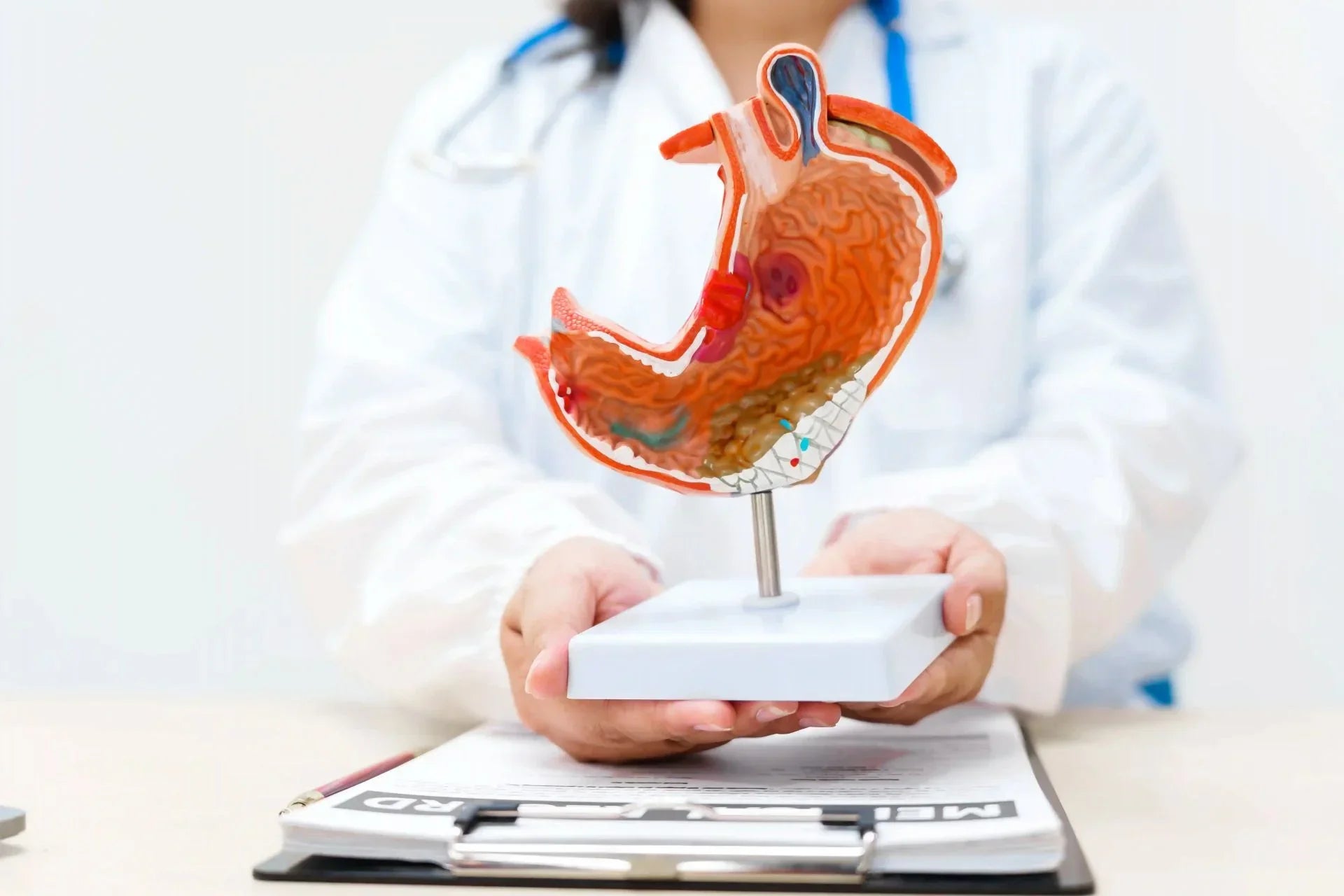Can reflux be reduced after bariatric surgery?
Written by: Laura Arantegui / Date: 10-30-24 / Read 5 Minutes
Bariatric surgery is a highly effective procedure for weight loss and improvement of conditions associated with obesity. However, one of the side effects that some patients may experience is gastroesophageal reflux (GER), a condition in which stomach acid backs up into the esophagus, causing discomfort and irritation. Understanding the causes, symptoms and treatments of reflux after bariatric surgery is critical to ensuring an effective recovery and maintaining a good quality of life.

Table of Contents
- 1. Common symptoms of gastroesophageal reflux.
- 2. Prevention of reflux after bariatric surgery.
- 3. Importance of medical and postoperative follow-up and supplementation.

Common symptoms of gastroesophageal reflux
Gastroesophageal reflux after bariatric surgery can manifest with various symptoms, which can vary in intensity among patients. The most common symptoms include:
- Heartburn: A burning sensation in the chest or throat, often worse after eating or at bedtime.
- Regurgitation: The involuntary backflow of food or liquid into the mouth, which may cause a sour or bitter taste.
- Difficulty swallowing: Sensation of food getting stuck in the esophagus, which can be painful and distressing.
- Chest pain: Sometimes, reflux can manifest as chest pain that can be mistaken for heart problems.
Prevention of reflux after bariatric surgery
Preventing reflux after bariatric surgery is possible through a comprehensive approach that combines medical follow-up, nutritional education and continuous patient monitoring.
Importance of postoperative medical follow-up and supplementation:
Regular medical follow-up is crucial to detect and treat reflux early. During these visits, the doctor can adjust medication and recommend supplements that help protect the lining of the stomach and esophagus.
Nutrition education and adherence to dietary recommendations:
A proper diet is essential to prevent reflux. Patients should avoid foods and beverages that irritate the stomach or relax the lower esophageal sphincter. It is equally important to follow recommendations on the quantity and frequency of meals.
In the downloadable document that you can find in this publication, you will find recommendations for patients with reflux: general recommendations, foods to avoid, recommended foods and cooking methods, etc. We encourage you to see it!
Continuous monitoring and treatment adjustments as needed:
Reflux not only has physical implications, but can also significantly affect the patient's quality of life and emotional well-being.

Physical consequences: esophagitis, ulcers, esophageal stricture:
If not properly treated, reflux can cause serious complications such as esophagitis (inflammation of the esophagus), esophageal ulcers, or esophageal stricture, which may require additional interventions.
In summary, managing reflux after bariatric surgery requires a proactive, multidisciplinary approach. With proper diagnosis, ongoing medical follow-up and adherence to dietary recommendations, it is possible to minimize symptoms and significantly improve the patient's quality of life.
Thus, gas production.
Bibliographic references
Chang P, Friedenberg F. Obesity and GERD. Gastroenterol Clin North Am. 2014 Mar;43(1):161-73. doi: 10.1016/j.gtc.2013.11.009. Epub 2013 Dec 27. PMID: 24503366; PMCID: PMC3920303.
2. Bou Daher H, Sharara AI. Gastroesophageal reflux disease, obesity and laparoscopic sleeve gastrectomy: The burning questions. World J Gastroenterol. 2019 Sep 7;25(33):4805-4813. doi: 10.3748/wjg.v25.i33.4805. PMID: 31543675; PMCID: PMC6737315.
Other supplements that will help you in your bariatric post-operative period
Frequently asked questions about reflux after bariatric surgery
See other related articles:









